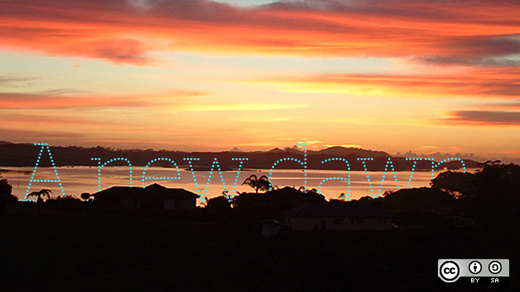The impact of technology on society and the economy continues to excite and challenge all of us. Policy makers are no exception. Their objective—writ large—is to put in place policies that encourage the development and deployment of beneficial technologies in order to drive growth, prosperity, and the general welfare of their citizens. Where should policy makers focus? The best place is where the future is happening. In other words, the best place is where innovation is happening.
In a 2011 Wall Street Journal opinion piece, the venture capitalist Marc Andreessen famously said "software is eating the world," meaning that software is invading and disrupting all parts of the economy. "More and more major businesses and industries," Andreessen wrote, "are being run on software and delivered as online services." The leaders in nearly every segment of the economy—from books, to telecommunications, to transportation, to retail, to financial services, to health care, to national defense—are or will soon be disruptive new software companies or incumbents that transform themselves into software companies. Software, in other words, is where Andreessen said innovation is happening.
And innovation, of course, is the key to growth, prosperity, and our future.
Since that time, several others have amended—or, perhaps, extended—Andreessen's quote, by pointing out that "open source is eating software." As surely as software is disrupting all segments of our economy and society, open source is in the process of disrupting and transforming nearly all segments of software.
There are multiple lists to be found detailing the ways in which open source is besting—or "eating"—proprietary offerings. But to understand the significance of this, it's useful to return to Andreessen's original argument. They key to his 2011 thesis is that "all of the technology required to transform industries through software finally works and can be widely delivered at global scale." The very characteristics that are allowing software to "eat the world"—a networked world enabling faster innovation, scalability, customization, and collaboration—are the same characteristics that put open source ahead of proprietary. Open source means quality, security, and cost-effectiveness. And, most importantly, it means genuine interoperability to fully enable the networked world.
The net is that it is open source truly where innovation is happening.
This claim is clearly recognized in the marketplace today. According to a recent survey on the future of open source, 78% of companies in 2015 run part or all of their operations on open source, which is double of what it was in 2010. Sixty-four percent of companies currently participate in open source projects and 88% expect their companies to increase contributions to open source projects in the next two to three years. Nearly 9 in 10 survey respondents said that open source greatly impacts the speed of innovation. Nearly as many say that open source improves margins and grows revenues.
What policy-makers should do
Where does this leave the question of what policy makers should do? As the great Canadian hockey player, Wayne Gretzky, once said, "I skate to where the puck is going to be, not where it has been." In recognition of where innovation is going (and, more accurately, where is now is), policies should be designed to encourage the uptake of open source.
The first and most powerful step that policy makers can take is to use public procurement and public administration information and communications technology (ICT) programs as means to bring government to where innovation is. Things like promoting the specification of open standards in procurement, and allowing and encouraging the participation of government ICT workers in external open source projects are key. Also, the creation or updating of government interoperability roadmaps, such as the European Interoperability Framework, will provide needed guidance for public administrations.
Policy makers should also study and adopt the best practices of governments that have already made significant progress on implementing open standards and promoting open source internally. For example, last year the UK government mandated the adoption of Open Document Format (ODF) in software purchases in all public administrations. Before that, in late 2012, the French government published a guideline urging the country's public administrations to not only make a thorough and systematic review of free alternatives when building and revising ICT infrastructure and applications, but also to use the savings realized by using open source to develop expertise and engage upstream communities. While often times progressive government policies in this space have been poorly implemented or not implemented at all, it's imperative that these efforts continue given that open source is the future.
Given the broader, direct and indirect market impact of government, government action will help bring along other segments of the economy that are not already up to speed. Beyond that, directly educating the public on the value of open standards and their importance in promoting innovation and avoiding vendor lock-in will help, as well. There are good example of leadership in this area in both the US and in Europe.
Governments the world over recognize that the effective promotion of ICT in their economies is central to their competitiveness, growth, and prosperity. All too often, however, these policies are motivated out of fear, resulting in protectionist measures. And, all too often, they are designed for the realities of the past (where the puck has been) as opposed to the future (where the puck is going to be).
Innovation is the key to winning. Innovation is the future. And, open source is where innovation is happening.







1 Comment